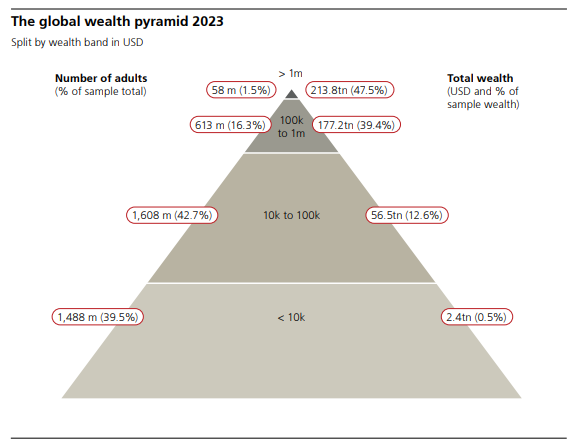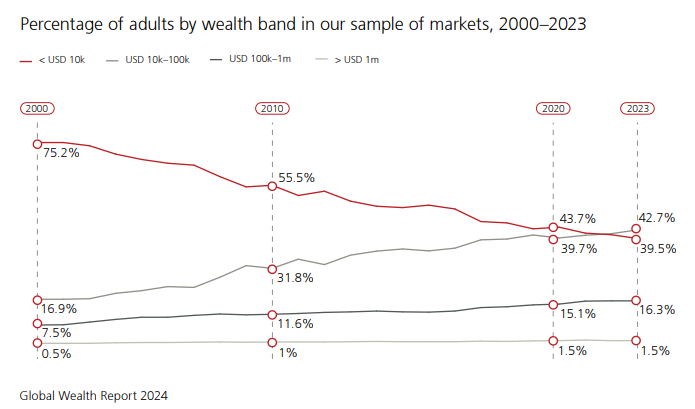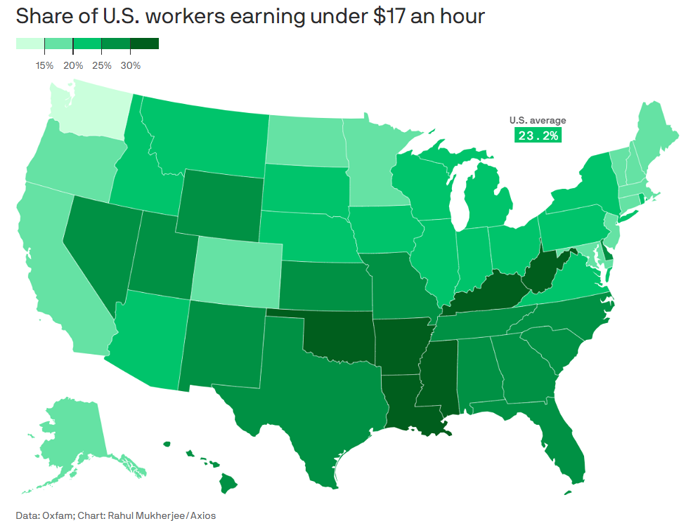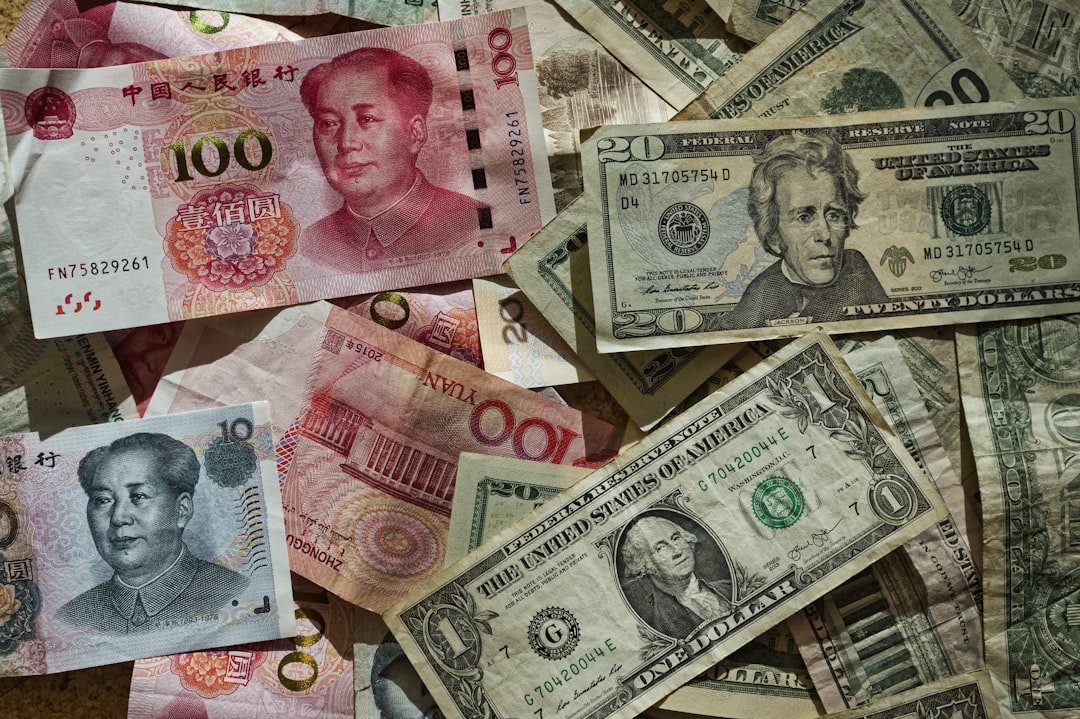The number of millionaires in the world is not as large as one might think. Only 1.5% of the global population holds assets worth more than one million dollars. Yet, it is surprising to learn that they control half of the world’s wealth. Billionaires are even fewer in number, with only 2,700 individuals holding over 20% of the world’s wealth. According to UBS’s annual report (Global Wealth Report), wealth inequality remains a significant issue. While the top wealth brackets possess immense assets, the report also shows that the living standards of the lower tiers are gradually improving.

The Rise of Millionaires and Its Impact
In 2000, over three-quarters of the world’s adults had assets of $10,000 or less. Today, this figure has dropped to below 40%, with the majority now holding assets between $10,000 and $100,000. Even accounting for inflation, this represents clear progress. The millionaire group has grown from 0.5% to 1.5% of the global population. China has 6 million millionaires, the United States 22 million, and the United Kingdom has 3 million.

Wealth Inequality and Improvements in Low-Income Living Standards
While wealth inequality remains a problem, the living standards of the low-income population are gradually improving. Even with inflation, there is the accompanying benefit of rising wages. Axios, citing Oxfam’s research, highlights a decrease in the percentage of low-wage workers in the United States. Currently, only 13% of U.S. workers earn less than $15 per hour, a significant drop from 31.9% two years ago. Oxfam has adjusted the definition of low-wage workers to those earning less than $17 per hour.

The Psychology of Comparison and Satisfaction
Unfortunately, we tend to evaluate wealth by relative rather than absolute standards. While the global reduction in poverty is positive news, people often compare themselves not to those who have less, but to those who have more. Social media, in particular, makes it easy to see others flaunting their wealth and success. This often leads to dissatisfaction as people compare themselves to those who are better off.

Conclusion: The Importance of Gratitude
A study conducted a few years ago found that individuals who inherited money believed they needed twice the amount they received to feel secure. The secret to happiness isn’t necessarily wanting less. While it’s meaningful to aspire to improve one’s status in life, it’s also crucial to cultivate a sense of gratitude for what one already has. Philosopher Arthur Schopenhauer said this about wealth.
Wealth is like seawater; the more you drink, the thirstier you become.
Reference: A Wealth of Common Sense, “How Many Millionaires Are There?”
